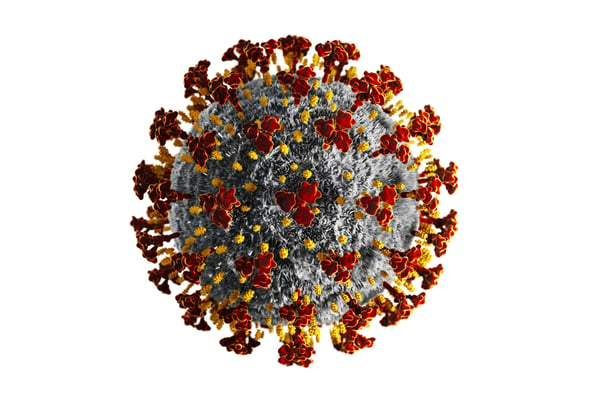COVID-19: Sharing Trusted Information and Connecting Reliably with Your People is Critical

In Case of Crisis is a proven crisis management platform that is an effective way for organizations to share trusted information and connect with employees and stakeholders. The platform does so night and day, via an app on their mobile device.
To further support organizations during this unprecedented crisis, we have worked with industry experts to create a COVID-19 Playbook, available via the In Case of Crisis app.
The information, templates and protocols in the Playbook enable an organization to share trusted guidance and updates quickly and effectively.
If you want more information about the special COVID-19 edition of In Case of Crisis click here.
Meantime, for the foreseeable future, we are going to use this blog to highlight information from the Playbook’s protocols that you can use to help your employees through this tough period, beginning with:
A PATIENT WHO IS MILDLY ILL, RECOVERING AT HOME
As reported on the University of Chicago Medicine website, early indications are that around 80% of people get what feels like a really bad cold and recover at home.
Here’s the guidelines for someone in such a situation, based on information from the Centers for Disease Control & Prevention (CDC):
Maintaining Isolation:
- Stay home, other than to get medical care – isolate at home during the illness.
- The sick person should take meals in the room in which they are isolated.
- Non-disposable food service items should be handled with gloves and washed with hot water or in a dishwasher.
- Use a separate bathroom at home, if possible.
- Restrict cleaning of the isolation room and bathroom to avoid contact with the sick person.
- If a separate bathroom is not possible, it should be cleaned and disinfected after every use by the sick person. If the sick person is unable to do so, the caregiver should wait as long as possible after use before conducting the cleaning.
- The sick person should wear a face mask. If the sick person cannot wear a face mask, the person’s caregiver should not stay in the same room with them or should wear a face mask.
- Do not share household items such as glasses, cups, utensils, towels or bedding.
- Dedicate a lined trash can for the sick person. Use gloves when removing garbage bags and disposing of trash.
- Restrict contact with pets (pending more information about the disease – there have not been reports of animals falling sick).
- Avoid public transportation, including ride-sharing and taxis.
Cleaning & Hygiene:
- Wear disposable gloves when handling dirty laundry from the sick person and discard the gloves after use. Clean your hands after the gloves are removed.
- Do not shake dirty laundry from the sick person and do not wash items with anyone else’s laundry.
- Clean and wash clothes hampers. If possible, use a disposable bag liner in hampers.
If the Condition Worsens:
- Seek prompt medical attention should your condition begin to worsen.
- Call ahead to your healthcare provider and tell them that your health is worsening.
- Follow the health provider's directions about your visit to minimize contact with others at the facility.
- If you call 911 for a medical emergency, inform the dispatcher that you have, or are being evaluated for, COVID-19.
- Put on a face mask before the medical team arrives.
SOURCES FOR FURTHER INFORMATION & UPDATES
The latest official national & international updates are available here:
INFORMATION ON THE SPECIAL EDITION OF THE IN CASE OF CRISIS APP - LEARN MORE
Learn how hundreds of organizations large and small are using our award-winning crisis management platform, In Case of Crisis, so you can be better prepared and respond faster to emerging threats like Coronavirus.









